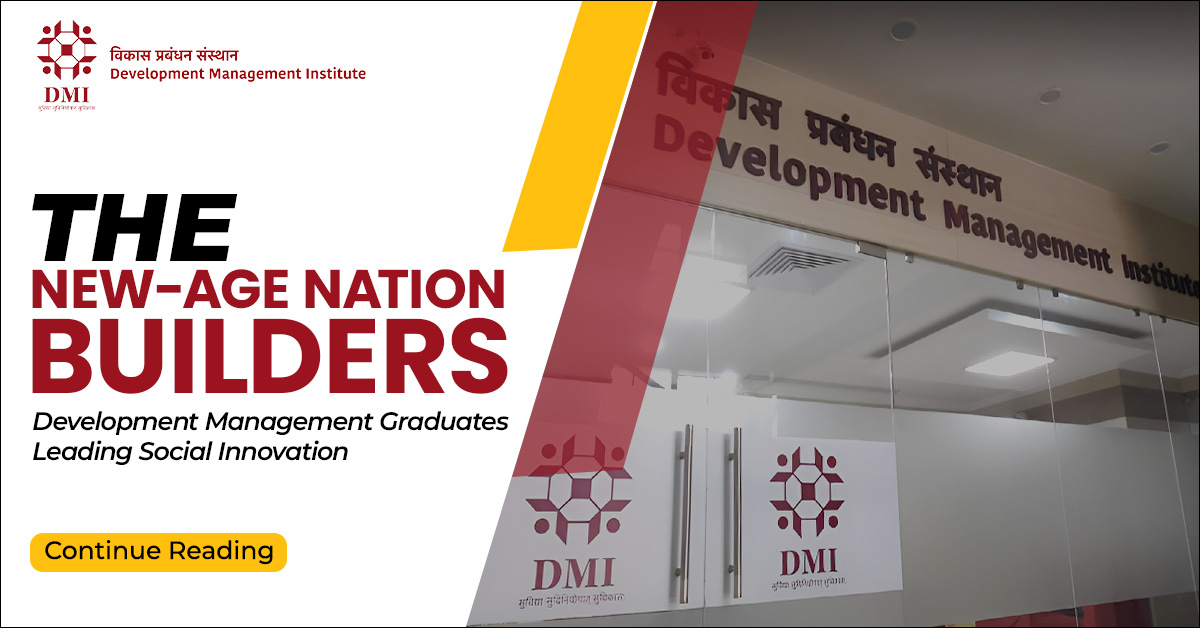
Introduction: Development Management – A Discipline for Impact
In today’s development discourse, the intersection of management science with social transformation is gaining renewed attention. At this confluence stands Development Management—a discipline grounded in evidence, strategy, and institutional theory. It is not merely a field concerned with grassroots empowerment but a structured managerial approach to solving complex socioeconomic problems at scale.
Unlike conventional management education, which is often focused on private sector efficiencies and shareholder value, Development Management expands its purview to distributive concerns, institutional diversity, and inclusive decision-making. It equips professionals with the ability to manage diverse organizations—ranging from state departments and CSR foundations to cooperatives, NGOs, and member-based institutions.
At its core, Development Management is about understanding how different economic agents—governments, enterprises, and households—can interact more productively within existing systems. It develops leaders who can work with varying institutional logics, growth trajectories, and developmental aspirations.
India’s Development Landscape: A Case for Managerial Expertise
India’s development challenges—poverty, inequality, jobless growth, and underutilized capacities—are not simply issues of resources or will. They are management challenges. They are concerned with how institutions are structured, how resources are allocated, and how outcomes are monitored.
In this context, Development Management plays a dual role:
- Supply-side focus: How can social enterprises, cooperatives, and even government departments operate more efficiently, remain mission-driven, and scale sustainably?
- Demand-side focus: How can households earn more, save with dignity, and participate meaningfully in local and national economies?
This two-sided approach enables professionals to design interventions that are both context-sensitive and managerially sound—applying tools of operations research, behavioural economics, and institutional design to real-world problems.
DMI Patna: A Management School for Impact Institutions
The Development Management Institute (DMI), Patna, was established with a clear mandate: to professionalize the development space by producing managers who understand institutional diversity and development outcomes. While rooted in the development discourse, DMI is fundamentally a management school, offering a specialized Post Graduate Programme in Development Management (PGPDM).
This distinction is important. DMI is not a training ground for charity workers—it is a school for impact managers who understand both the economics and operations of development institutions.
What Makes DMI’s Model Unique?
DMI’s model uniquely blends core management principles with grassroots development practice, preparing professionals to drive systemic change across diverse organizational contexts. It emphasizes both economic viability and social impact, equipping graduates to work with corporates, governments, and community institutions alike.
1. Practice-Oriented Curriculum:
The curriculum draws from management science, public systems, and development economics. Courses include livelihood systems, enterprise development, policy design, and institutional behaviour, offering a balance of conceptual rigor and practical relevance.
2. Immersion-Based Learning:
The Development Immersion and Enterprise Learning modules expose students to institutional realities—working directly with state departments, cooperatives, and community-based organizations. These experiences help students understand diverse economic rationalities and managerial structures.
3. Multi-Institutional Interface:
Graduates are trained to manage programs and institutions at the intersection of state, market, and civil society. Whether it’s a CSR unit inside a corporation or a producer collective in a rural cluster, DMI graduates are equipped to work across organizational forms.
4. Focus on Distributional Issues:
A core emphasis is placed on understanding who benefits from growth, how benefits are distributed, and what institutional mechanisms ensure equitable participation. This focus on distributive justice is underpinned by technical training in impact assessment, financial analysis, and policy evaluation.
Development Management Graduates: Building Institutional Capacity
Graduates of DMI are increasingly seen as professionals who can design systems, manage outcomes, and evaluate impact—all within the complex terrain of development. Their skill set is uniquely suited for roles in:
- State and national planning bodies
- CSR and ESG divisions of large corporates
- Multilateral institutions and development banks
- Producer organizations, cooperatives, and SHG federations
- Social enterprises and impact-driven startups
Importantly, they don’t just bring an activist mindset—they bring a systems approach grounded in data, strategy, and management.
Why Development Management Is Critical for India’s Growth
India’s aspiration to become a $5 trillion economy must be matched by efforts to institutionalize inclusion, professionalize public systems, and scale impact. This calls for professionals who can:
- Operate across sectors while aligning diverse stakeholder goals.
- Design incentive structures that promote both equity and efficiency.
- Translate data into policy and policy into community outcomes.
- Scale innovations without compromising contextual relevance.
The demand for such professionals is growing—not just in governments or NGOs but across value-driven enterprises and mission-led institutions.
DMI Patna’s Role in Nation Building
As a new-generation management school, DMI Patna is addressing a critical gap in India’s institutional ecosystem: the shortage of trained professionals who can work at the intersection of strategy, systems, and sustainability.
Its graduates are not just project implementers—they are institution builders, capable of thinking across timelines and sectors. Whether it is promoting entrepreneurship among women in Bihar or building digital platforms for cooperatives, DMI alumni are reshaping how development is imagined and executed.
Final Note
Development Management is no longer an emerging field—it is an essential one. As India continues to face multidimensional development challenges, the role of impact managers trained in management science, systems thinking, and development economics will become even more significant. Institutions like DMI Patna are leading the way—producing professionals who don’t just manage change but institutionalize it.
And as DMI Patna continues to nurture these torchbearers of change, India inches closer to its vision of “Sabka Saath, Sabka Vikas, Sabka Vishwas.”
Let’s work together to build a better future for all. Visit DMI Patna Website to Apply Now.
You can join this group: [Official] Development Management Institute (DMI) Patna | PGDM Admissions 2025-2027 | to learn more about the various courses offered.
